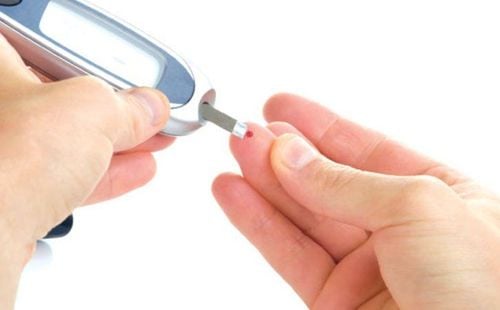This is an automatically translated article.
For a long time, chicken eggs and duck eggs in general are considered as a rich source of nutritional supplements, appearing in most family meals around the world. However, there are many views that the amount of fat in eggs, specifically in egg yolks, is the cause of cardiovascular blockage, thereby eliminating eggs from the diet.
1. Are eggs and fat the cause of heart block?
Opinion from nutritionist Walter Willett of the Harvard T.H. School of Public Health. Chan recommends that dietary cholesterol should not be a concern for human health.
Atherosclerotic plaques that block blood vessels in the mechanism of cardiovascular disease are created from cholesterol and the amount of fat in eggs (such as chicken eggs, duck eggs ...) is very high. Therefore, we often tend to link these two problems together and assume that consuming a lot of eggs will increase the risk of cardiovascular disease.
According to Mr. Willett, a Professor of Epidemiology and Nutrition by the name of Fredrick John Stare, and chair of the Department of Nutrition, once answered an interview: There are no data to show that people use a lot Eggs (such as eggs) and the amount of fat in eggs increase the risk of heart disease.
Mr. Willett made an important recommendation that we do not need to limit the total amount of fat in our diet. “If you are going to limit total fat, that leads to consuming more carbohydrates. In society and in the current human food supply, consuming a lot of carbohydrates equates to eating a lot of starches and refined sugars - this has been the case for the last two decades or so."

Trứng và chất béo không phải là nguyên nhân gây tắc nghẽn tim mạch
Mr. Willett added: "There aren't any data from studies that claim a low-fat, high-carbohydrate diet is beneficial - those are just baseless predictions."
2. New dietary principles
How to diet for good health and how to maintain it? We need to learn new dietary principles:
The diet includes a variety of fruits and vegetables. Choose whole grains instead of refined ones. In addition, you should add non-fat dairy products, eat a lot of beans, nuts and seafood; Limit consumption of red meat and processed, ready-made meat. Eat less foods high in sugar, saturated fat and salt; Foods high in cholesterol, such as the fat in eggs, were previously considered unhealthy, but are now recommended for good health. Recent studies have shown no correlation between blood cholesterol and dietary cholesterol, meaning that eating a lot of cholesterol does not have much of an effect on blood cholesterol levels. Therefore, properly supplementing eggs with up to one egg per day is not associated with an increased risk of heart disease in healthy individuals.

Cần tìm hiểu nguyên tắc ăn kiêng và duy trì những chế độ đó để tốt cho sức khỏe
The above are the main recommendations of the 2015 Dietary Guidelines Advisory Committee (DGAC) in a report on the link between food, nutrition and physical activity that can affect health the people of the United States.
Although these recommendations have not been taken officially, the results of the report have been sent to the US Department of Health and Department of Agriculture for review. These two organizations typically follow the recommendations of the DGAC in issuing the Dietary Guidelines for Americans each year. These guidelines play an important role in the diets of many people.
The truth is that too many people have diets and lifestyles that don't match current recommendations and are a risk factor for serious health problems like cardiovascular disease, high blood pressure, diabetes, and heart disease. type 2 diabetes, cancer and overweight and obesity.
Hope the information in the above article will help readers understand the health benefits of eggs and their relationship, fat to the diet, risk of diseases. If you still have doubts, you can go to Vinmec International General Hospital to examine, develop a nutritious diet and receive advice from experts.
Please dial HOTLINE for more information or register for an appointment HERE. Download MyVinmec app to make appointments faster and to manage your bookings easily.
Reference source: hsph.harvard.edu












